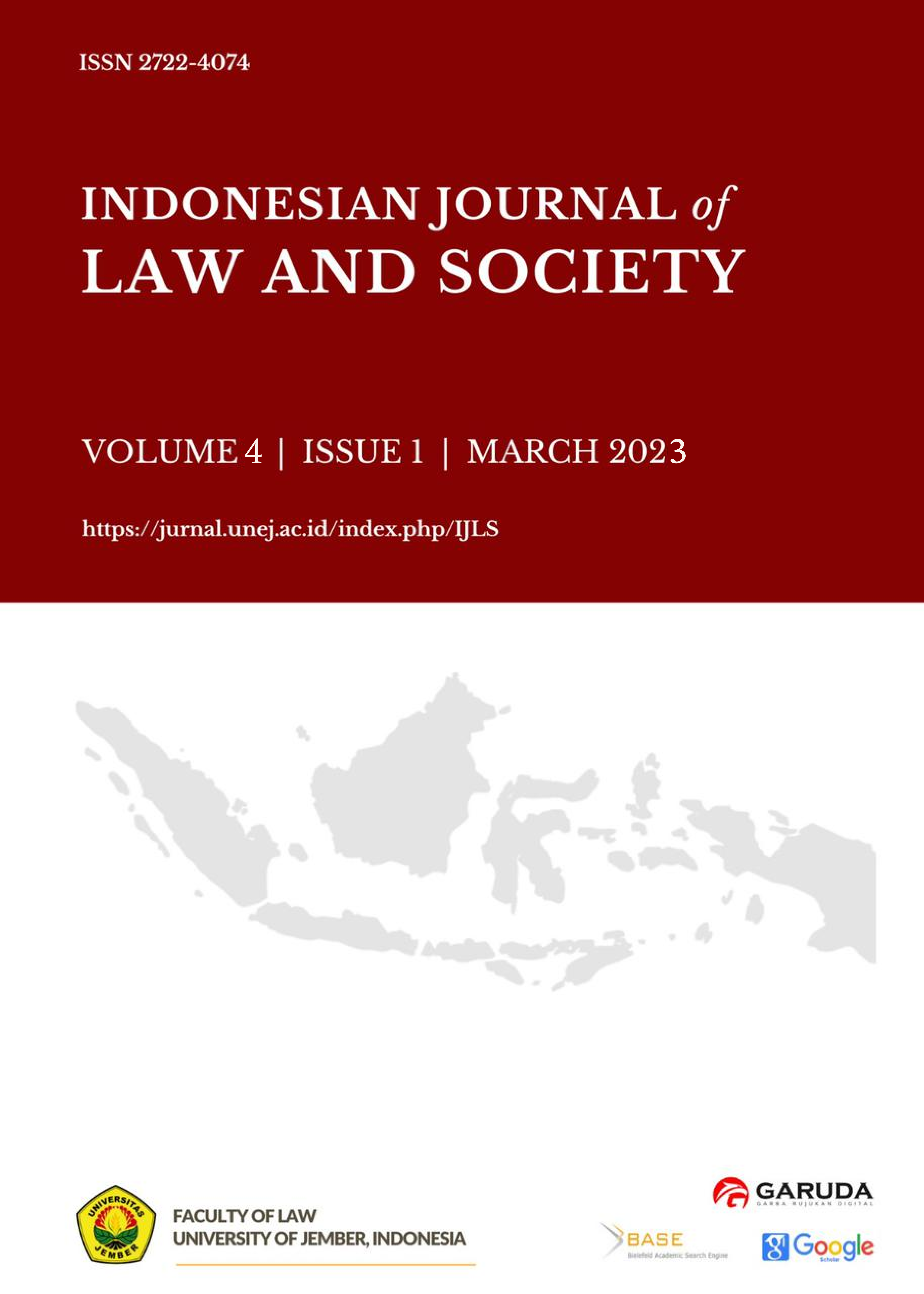The Freedom of Contract
The Indonesian Court's Decisions on International Bussiness Disputes
DOI:
https://doi.org/10.19184/ijls.v4i1.38486Abstract
The presence of free trade zone and the increase in cross-border trade, have led to a significant increase in transnational legal relations. As a result, international contracts have become more common, and the principles of freedom of contract, including the freedom to choose the law and forum, have become increasingly important. Freedom of contract is a very universal principle. Almost all countries in the world recognize it as a very fundamental principle in contracts, even in international business contracts. This principle recognizes that contracts made by the parties act as laws for the parties that compile them. However, there is still lacking consistency among Indonesian judges in their interpretation of the choice of law and forum in international contracts. This study examined the raison d’ etre of different views and decisions of Indonesian judges in interpreting the choice of law and the choice of forum, and its implication to the principle of legal certainty in international business disputes. Through the normative legal research which elaborated with a case study, this research finds that The views of some Indonesian court judges deviate from the principle of freedom of contract where the law that has been chosen by the parties is based on considerations of the principle of effectiveness besides focusing on the nature of the case handled so that the decision can be executable. The court may need to balance the principle of freedom of contract with other important considerations in order to arrive at a fair decision. This is why it is important for judges to have a clear understanding of both the principles of freedom of contract and the practical implications of their decisions in order to promote legal certainty in international business transactions.
Downloads
Downloads
Published
Issue
Section
License
The Indonesian Journal of Law and Society has CC-BY-SA or an equivalent license as the optimal license for publishing, distributing, using, and reusing scholarly work. Authors who publish with this journal retain copyright and grant the journal right of first publication with the work simultaneously licensed under a Creative Commons Attribution-ShareAlike 4.0 International License that allows others with permission from the publisher to share the work with an acknowledgment of the work's authorship and initial publication in this journal.


